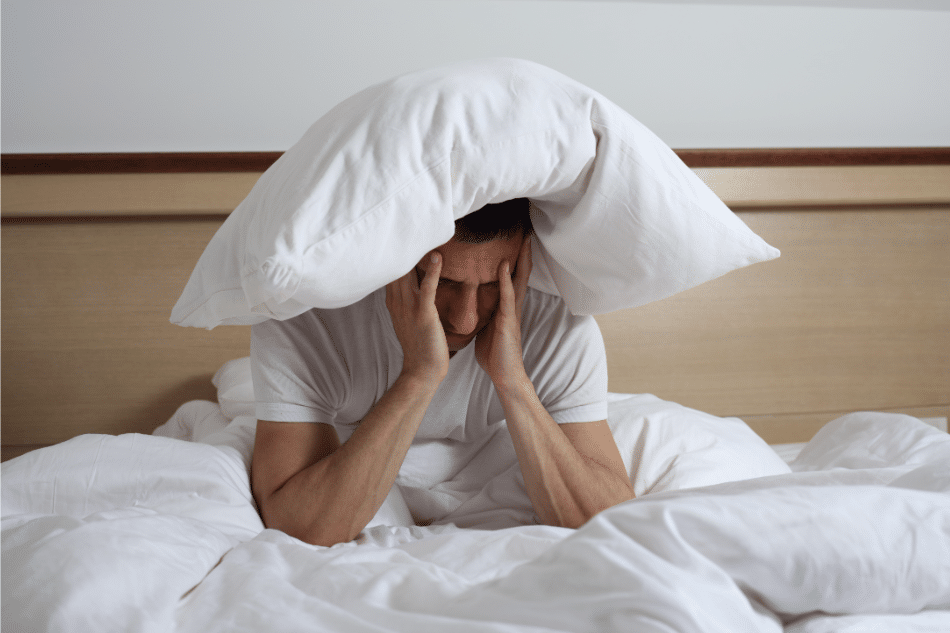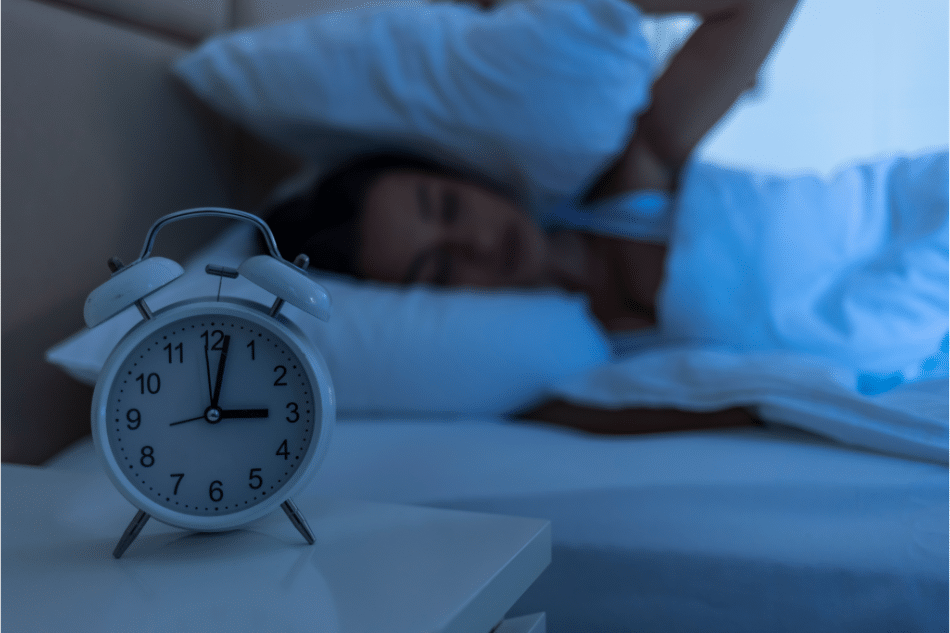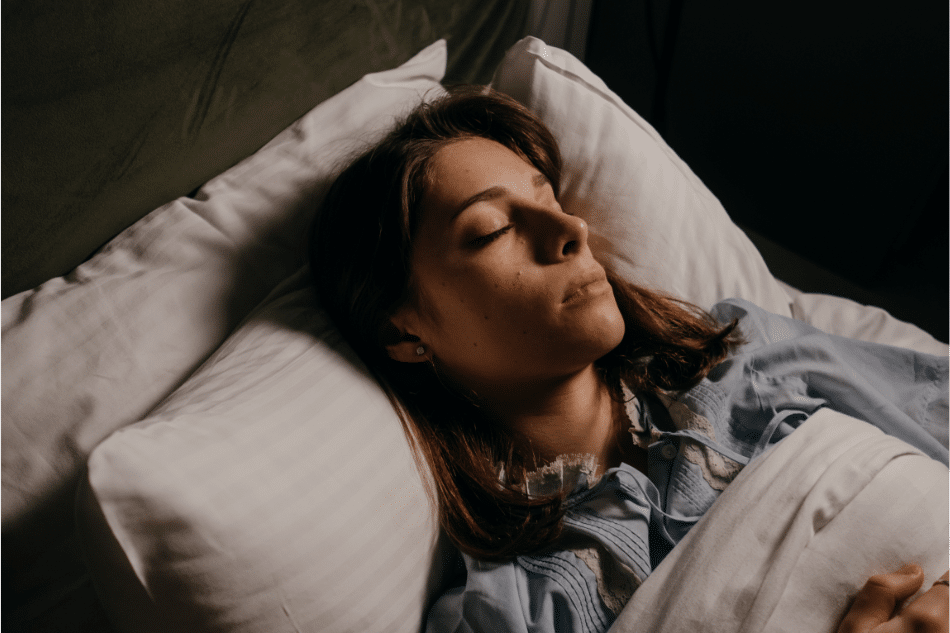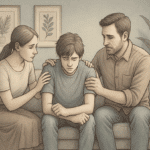How Can Sedative Antidepressants Help Teenagers?

More than 70% of U.S. teens aren’t getting enough sleep according to the Centers for Disease Control and Prevention (CDC). Meanwhile, depression and anxiety are on the rapid increase.1 These are concerning statistics, to say the least.
Without sleep to help you rest and reset, everything suffers: your mental health, your relationships, your focus, and even your physical health. So, sleep is one of those things where, if you can maximize it, it’s strongly recommended that you do. But what’s out there to help?
Therapy and healthy routines are often the first port of call for teens struggling to sleep. But as vital as these options are, they don’t always give you the quick relief that you need – especially when sleep problems and anxiety are spurring each other on and making it difficult for you to cope. In these cases, sedative antidepressants can be a great option.
Yet, when faced with this treatment option, it’s common to ask: Can one small pill really help a teenager sleep better, feel calmer, and manage depression – all at the same time? Sedative antidepressants aim to do exactly this. They’re a type of medication that blends sleep aids and mood stabilizers together. As such, sedative antidepressants for teen insomnia and mental health difficulties can be an extremely promising form of treatment.
On this page, we’ll look at how these medications work, when they might be appropriate for teens, and the risks, benefits, and alternatives available.

What Are Sedative Antidepressants?
Sedative antidepressants are medications that can make managing depression and anxiety easier, while at the same time helping you to sleep.2 Antidepressants work by balancing out certain brain chemicals to help lift your mood and make you feel more calm. They also work on the chemicals in your brain that tell your body it’s time to rest and sleep. This makes them particularly useful if you struggle with both your mental health and sleep problems.
Sedative antidepressants aren’t considered sleeping pills because their main purpose is to improve your mood, they just happen to have a useful sleepy side effect. This is the main way they differ from sleep medication – sleep medication is designed specifically to make you fall asleep rather than help with other possible challenges like depression or anxiety.
Sedative antidepressants can also be particularly useful if your current antidepressant causes you to feel restless and lose sleep, as they can help you feel uplifted while supporting you to get a good night’s sleep.
For people with depression and insomnia, some of the most common sedative antidepressants are trazodone, mirtazapine, and amitriptyline.3 However, sedative antidepressants are usually never the first option recommended to you if you have problems with sleeping. They are typically considered once other possibilities – like therapy, sleep hygiene routines, and other sleep medications – have proven ineffective on their own.
Why Might Teens Be Prescribed Sedative Antidepressants?
So, sedative antidepressants aren’t the first line of treatment for teens with sleep issues or mental health challenges. However, they might be considered when you have both. Sleep and mental health difficulties can have a harmful symbiotic relationship – sleep disturbances can be a symptom of a mental health issue, and poor sleep can make these challenges worse. In this way, they can worsen one another, which is why it’s important to address sleep issues alongside mental health challenges like depression or anxiety.
Let’s explore, in a little more depth, how sedative antidepressants can help with sleep, depression, and anxiety in teens.
How Sedative Antidepressants Help Teens With Sleep
Some antidepressants, such as mirtazapine and trazodone, can be prescribed to help teenagers with sleep issues. These medications can help you fall asleep and stay asleep because they work not only on serotonin, a so-called “happy” hormone, to improve your mood, but also on the chemicals in the brain that tell your body it’s time to get some sleep.4
Teen Depression Treatment With Sedative Antidepressants
SSRI medications like Prozac or Zoloft are usually the first line of treatment for depression. However, Antidepressants that cause you to feel sleepy and also target depression symptoms, like mirtazapine and trazodone, can be a good option to help tackle all of your symptoms, such as low mood, hopelessness, and broken sleep.
When you take sedative antidepressants for depression and sleep issues, rather than having to take different medications for your depression and sleep, you can get the control and management you need all in one pill.
Using Sedative Antidepressants for Teen Anxiety
If the most common types of antidepressants (SSRIs or SNRIs) aren’t helping your anxiety, your doctor may prescribe a tricyclic antidepressant (TCA) such as clomipramine or amitriptyline. Sedative antidepressants can help you manage your anxiety symptoms and have the side effect of making you feel calm and sleepy.5
Benefits of Sedative Antidepressants in Teens

Here are some of the benefits you can get from taking a sedative antidepressant:
- Antidepressants are generally safe to take and are well-studied.
- They are effective at relieving symptoms of depression and anxiety.
- Antidepressants can make it easier for you to carry out other parts of your treatment, like therapy or lifestyle changes.
- Sedative antidepressants can help you fall asleep and stay asleep longer, meaning a better night’s sleep for you.
- You only need to take one medication to manage both your mental health and your sleep difficulties, so you potentially only need to remember to take one tablet a day (depending on if you take any other medications for different issues).
- There won’t be any worries about interactions between two different sleep and antidepressant medications.
- There’s less potential for side effects due to taking a single medication rather than multiple.
Risks and Side Effects of Sedative Antidepressants in Teens
Unfortunately, sedative antidepressants don’t just come with the benefits of feeling your mood lift, anxiety drop, and better sleep. Like all medications, they come with the potential for side effects and risks. To help you weigh up your options, let’s explore some of these next.
Side Effects of Sedative Antidepressants in Teens
Side effects are unintended effects – physical or mental changes – from starting medication. They can be unpleasant but are usually temporary (lasting a week or two) while your body and brain get used to this new chemical helping it out.
Side effects can range from mild to severe, and because we are all unique, everyone reacts slightly differently to them. Some people don’t notice any side effects when they start taking sedative antidepressants, and some people do get them, so it’s important to know what to look out for.
Some of the most common side effects of sedative antidepressants include:6,7,8
Blurred vision
- Confusion
- Dizziness
- Lightheadedness
- Dry mouth
- Sweating
- Feeling sleepy
- Increased appetite
- Weight gain
- Constipation
You may have noticed increased appetite in the list, which is why sedative antidepressants and weight gain in teens sometimes go hand-in-hand. Your doctor will likely monitor your weight and give you advice on simple lifestyle changes that can be made to keep your weight at a level you are happy with whilst taking sedative antidepressant medication.
As such, it’s important to attend any reviews you have booked with your doctor and to let them know of side effects you experience, as they may be able to suggest ways to manage them or make them easier for that initial week or two. It can be useful to note down any side effects or changes you feel in the notes app on your phone to help you remember.
Risks of Sedative Antidepressants in Teenagers
Talking about suicide- Self-harm
- Worsening depression or anxiety
- Agitation or irritability
- Impulsiveness
- Aggression
Although this warning sounds scary, remember that your doctor will have carefully weighed up the risks and benefits before prescribing this medication to a teenager, and will do what they believe is in their best interest.
Sedative Antidepressants Dosage for Teens
Doctors can adjust the dosage depending on how you feel, whether you are getting the benefits you hoped for, and whether you are having any side effects. This is why writing down your symptoms and how you feel can be useful. Whether you write it in an app or in a notebook, you’ll have the information there to talk your doctor through when it comes to review time.
Stopping Sedative Antidepressants Safely in Teens
Some common withdrawal effects are:6,10,11
Headache- Nausea or vomiting
- Feeling flu-like
- Anxiety
- Irritability
- Restlessness
- Trouble sleeping
- Dizziness
Alternatives to Sedative Antidepressants
Sedative Antidepressants vs Sleep Medications for Teens
You might prefer to take sleep medications over sedative antidepressants if you’re having trouble sleeping but don’t have mental health challenges at the moment.
If you’re already taking medication for your mental health and are happy with what you’re taking, adding in a dedicated sleep medicine, such as Zolpidem or Lunestra, could be a better option.
Therapy
Did you know there is a type of therapy targeted at treating sleep problems? It’s called cognitive behavioral therapy for insomnia, or CBT-I for short. It’s an effective treatment for chronic insomnia and can help you to fall asleep much quicker by targeting:
The practical side of sleep – like sleep routines- The cognitive side as well, like worries you may be having that keep your mind racing at night.
It can also be just as effective as sleep medications, without any of the side effects.12
Lifestyle Changes
Lifestyle changes can help you get better sleep. Reducing how much caffeine you drink during the afternoon and evening, getting some exercise during the day to help tire you out, and limiting screen time and bright lights before going to bed can all help create a good sleep routine and give you the best chance of having a good night’s sleep.13
To find out more activities that align with staying mentally healthy, you can check out our page: 10 Effective Mental Health Activities for Teens.
Get Support With Sleep Issues Today
If you or your teen feel like your sleep is affecting your mental health, know that help is available. Mission Prep understands that getting a good night’s sleep is essential for managing depression and anxiety, and we are here to guide you through the options available to help you.
We specialize in helping teens master their mental health. We know that you’re unique, which is why we create treatment plans that are tailored to meet your needs. Whether you are interested in medication management, therapy, or lifestyle changes, we can support you on your journey to recovery. Some of our treatment programs include:
- Residential Mental Health Treatment for 24/7 support
- Outpatient Mental Health Programs including therapy such as CBT and EMDR
- Intensive Outpatient Programs for those wanting daily support without the overnight stays.
If you’re ready to take the next step toward better mental health, contact us today to speak to our team of professionals about the difference we can make to your mental health healing.

References
- Centers for Disease Control and Prevention. (2024, May 15). FastStats: Sleep in high school students. https://www.cdc.gov/sleep/data-research/facts-stats/high-school-students-sleep-facts-and-stats.html
- Wichniak, A., Wierzbicka, A., & Jernajczyk, W. (2012). Sleep and antidepressant treatment. Current Pharmaceutical Design, 18(36), 5802–5817. https://doi.org/10.2174/138161212803523608
- Schutte-Rodin, S., Broch, L., Buysse, D., Dorsey, C., & Sateia, M. (2008, October 15). Clinical guideline for the evaluation and management of chronic insomnia in adults. Journal of Clinical Sleep Medicine. https://pmc.ncbi.nlm.nih.gov/articles/PMC2576317
- Aiken, C. (2020, December 20). Sleep problems can guide antidepressant selection. Psychiatric Times. https://www.psychiatrictimes.com/view/sleep-problems-can-guide-antidepressant-selection
- Pressner, K. S. (2022, September 19). Anxiety medications for teens: Treatment options for your child. HealthCentral. https://www.healthcentral.com/condition/anxiety/abilify-aripiprazole
- Mayo Clinic. (2025, May 1). Trazodone (oral route). https://www.mayoclinic.org/drugs-supplements/trazodone-oral-route/description/drg-20061280
- University of Illinois. (2021, August 12). Mirtazapine, oral tablet. https://www.medicalnewstoday.com/articles/mirtazapine-oral-tablet
- Cleveland Clinic. (2024, December 19). Amitriptyline tablets. https://my.clevelandclinic.org/health/drugs/19457-amitriptyline-tablets
- Center for Drug Evaluation and Research. (2018, February 5). Suicidality in children and adolescents being treated with antidepressant medications. U.S. Food and Drug Administration. https://www.fda.gov/drugs/postmarket-drug-safety-information-patients-and-providers/suicidality-children-and-adolescents-being-treated-antidepressant-medications
- Mayo Clinic. (2025, May 1). Clomipramine (oral route). https://www.mayoclinic.org/drugs-supplements/clomipramine-oral-route/description/drg-20072005
- Mayo Clinic. (2025, April 1). Mirtazapine (oral route). https://www.mayoclinic.org/drugs-supplements/mirtazapine-oral-route/description/drg-20067334
- Rossman, J. (2019). Cognitive-behavioral therapy for insomnia: An effective and underutilized treatment for insomnia. American Journal of Lifestyle Medicine, 13(6), 544–547. https://doi.org/10.1177/1559827619867677
- American Psychiatric Association. (n.d.). What are sleep disorders? https://www.psychiatry.org/patients-families/sleep-disorders/what-are-sleep-disorders



















